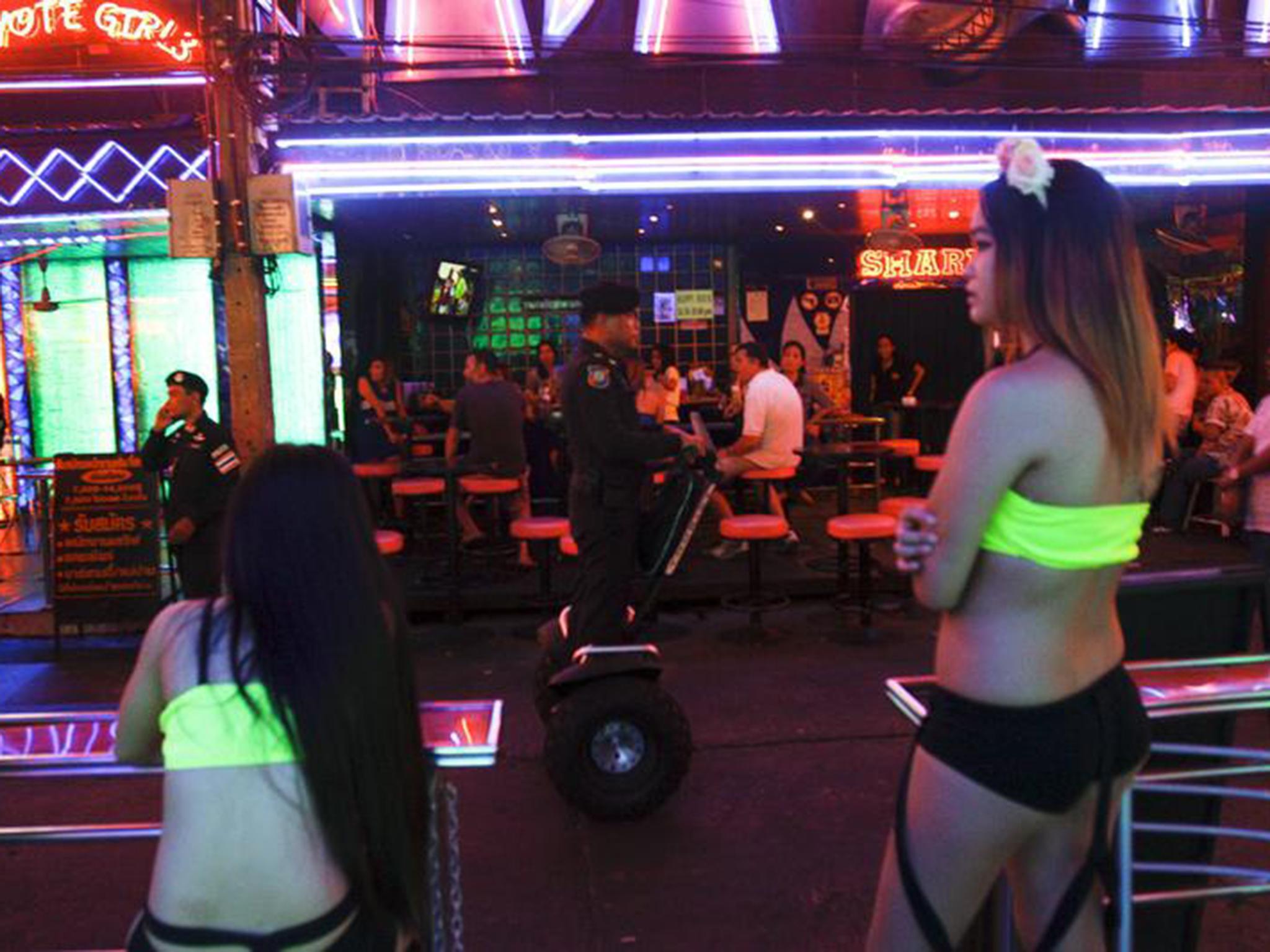How Thailand’s military is putting a stop to Bangkok's famously rambunctious underground nightlife
'The difference is that you could push back against Thaksin’s social order without fear of military repression'

Thailand’s military government is crushing the spirit of Bangkok’s nightlife amid an intensifying crackdown that is forcing many bars and clubs to close early or indefinitely. With an election tentatively set for February 2019, the campaign appears to be a last-ditch attempt by the embattled government to impose social order and salvage its legacy.
Since the army swept to power in a bloodless coup in 2014, it has intermittently enforced curfews and arcane regulations to rein in the city’s rambunctious nature, but in the past year its efforts appear to have gained vigour.
Bar owners say military officials are barging into their premises demanding to see licences they have long operated without or didn’t even know existed. In the raucous coastal city of Pattaya recently, expats and tourists were incredulous when authorities went into bars asking to see a licence for those with dartboards.
The government maintains it is simply enforcing regulations that existed long before it came to power. Officially, all bars and clubs must close by 2am, according to 2004 regulations, a rule long ignored by police – often in return for bribes.
The crackdown has had the biggest impact on after hours venues and fledgling businesses already grappling with high taxes on imported food and alcohol.
Last year, Dark Bar, a bastion of underground music in Bangkok, was forced to close after authorities imposed a midnight curfew and Swing, which got going after 4am, closed after drug raids.
Wong’s Place, a rickety old drinking den where revellers can smoke inside and drink till dawn, was recently ordered to start closing at 2am.
“It is the first time in 40 years something like this has happened,” said bar owner Sam Wong, referring to the closing time and to a recent raid by army officers to check whether he has a licence to play music.
Mr Wong, who would leverage his ties with local police for leeway on the rules, says the military isn’t budging.
Anders Svensson, a DJ and founder of an electronic music events company called 52Hz Bangkok, said the military’s campaign risks putting the brakes on a thriving underground music scene.
“Bangkok has become a much less spontaneous city and in many ways a more boring city than it was five years ago,” he said.
Deputy government spokesman Werachon Sukondhapatipak said the military set itself the task of forcing businesses to comply with the law and holding Thailand’s youth to higher moral standards.
He said disorderly young Thais, staying out late, had provoked the new measures.
A palpable cleanup of the city began after the death of Thailand’s revered monarch Bhumibol Adulyadej in October 2016, with street activity subdued in the year of mourning that followed.
In many bustling tourist spots, street-food sellers were moved from main roads into side streets or to new parts of the city and many roadside alcohol sellers who would appear after midnight also disappeared. The government said the moves are to create a cleaner city.
Yet a campaign to hem in Thailand’s freewheeling society is nothing new. Fugitive former prime minister Thaksin Shinawatra, loathed by the military and ultraconservative political establishment, launched a similar offensive in the early 2000s, setting bar and club closing times at 2am and attempting to curb underage drinking.
“The difference is that you could push back against Thaksin’s social order without fear of military repression,” said Thitinan Pongsudhirak, director of the Institute of Security and International Studies at Bangkok’s Chulalongkorn University.
But the military appears in no mood to back down as Prime Minister Prayuth Chan-ocha seemingly makes a tacit bid to remain prime minister after the election.
Upon seizing power, the military boasted it would cure the recklessness and rot it claims had infested the Shinawatra governments.
But with the former prime minister, Yingluck Shinawatra, out of the political picture after she was sentenced in absentia last year for negligence over her government’s loss-ridden rice subsidy programme, the military has lost its primary justification for holding onto power.
Frustrated civilians are still waiting for an election they were promised would take place in 2015.
According to nationwide polls by the Bangkok University Research Center, the government’s popularity has declined from an approval rating of 62 per cent after its first six months in office to 56 per cent in February this year.
“The military government is on the back foot because its three main coup aims are unfulfilled. National reconciliation after a decade of conflict remains elusive, political reform and the new constitution are crooked and biased toward military interests and graft remains widespread, including the generals’ own undertakings,” Mr Thitinan said.
The government has also faced a barrage of criticism over its suppression of free speech, its plans to buy expensive submarines from China and most recently its handling of a scandal involving deputy prime minister general Prawit Wongsuwan and his supposed vast collection of undeclared luxury watches.
Making a show of imposing social order, by moving against bars, is simply a distraction, political analysts say.
“They haven’t addressed the underlying issues, they’ve merely tidied up,” said David Streckfuss, author of Truth on Trial in Thailand: Defamation, Treason, and Lèse-Majesté.
Bar owners say they are losing tourists to cheaper destinations such as Cambodia and Vietnam.
Jenjira Prasertsin, owner of the Madrid bar in Patpong, Bangkok’s original red-light district, said she’s keen for regulations to be imposed, but businesses need time to adjust.
Until then, the city’s spirit is too defiant to be snuffed out just yet.
“People still party, just it happens increasingly behind closed doors,” Mr Svensson said.
The Washington Post
Join our commenting forum
Join thought-provoking conversations, follow other Independent readers and see their replies
Comments